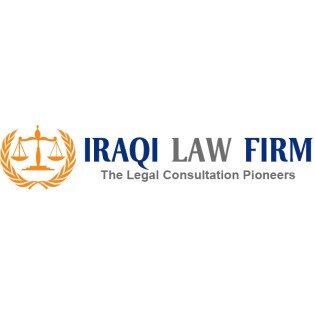Best Admiralty & Maritime Lawyers in Iraq
Share your needs with us, get contacted by law firms.
Free. Takes 2 min.
Or refine your search by selecting a city:
List of the best lawyers in Iraq
About Admiralty & Maritime Law in Iraq:
Admiralty and Maritime law in Iraq deals with legal issues related to maritime activities, including navigation, commerce, and shipping. It covers a wide range of matters such as injuries at sea, collisions, cargo disputes, salvage, and marine pollution.
Why You May Need a Lawyer:
You may need a lawyer specializing in Admiralty & Maritime law in Iraq if you are involved in a maritime-related dispute, such as a collision, cargo damage, or personal injury at sea. Additionally, if you are a shipowner, charterer, cargo owner, or insurer facing legal challenges, a lawyer can help protect your rights and interests.
Local Laws Overview:
In Iraq, Admiralty and Maritime law is primarily governed by the Code of Maritime Trade Law issued in 1952. This law regulates maritime commerce, navigation, and related activities in Iraqi waters. It covers issues such as ship registration, maritime liens, salvage, and marine pollution.
Frequently Asked Questions:
1. What is the Code of Maritime Trade Law in Iraq?
The Code of Maritime Trade Law in Iraq is a legal framework that governs maritime activities in Iraqi waters, including navigation, commerce, and shipping.
2. Can I file a lawsuit for injuries sustained at sea in Iraq?
Yes, you can file a lawsuit for injuries sustained at sea in Iraq under the provisions of Admiralty and Maritime law.
3. Are there specific regulations for ship registration in Iraq?
Yes, ship registration in Iraq is regulated under the Code of Maritime Trade Law, which sets out the requirements and procedures for registering ships in Iraqi waters.
4. How can I resolve a cargo dispute in Iraq?
You can resolve a cargo dispute in Iraq through negotiation, mediation, or litigation with the assistance of a lawyer specializing in Admiralty & Maritime law.
5. What are the penalties for marine pollution in Iraq?
The Code of Maritime Trade Law in Iraq imposes penalties for marine pollution, including fines and compensation for damages caused by pollution incidents.
6. Can I seek compensation for salvage services in Iraq?
Yes, you can seek compensation for salvage services in Iraq under the provisions of Admiralty and Maritime law.
7. How is liability determined in a maritime collision case in Iraq?
Liability in a maritime collision case in Iraq is determined based on factors such as fault, negligence, and compliance with maritime regulations.
8. Are there specific laws governing maritime insurance in Iraq?
Yes, maritime insurance in Iraq is regulated under the Code of Maritime Trade Law, which sets out the requirements and provisions for maritime insurance contracts.
9. Is it mandatory to have a lawyer for Admiralty & Maritime cases in Iraq?
While it is not mandatory to have a lawyer for Admiralty & Maritime cases in Iraq, legal representation can help protect your rights and interests in complex maritime disputes.
10. How can I enforce a maritime judgment in Iraq?
You can enforce a maritime judgment in Iraq through the local courts with the assistance of a lawyer specializing in Admiralty & Maritime law.
Additional Resources:
For more information on Admiralty & Maritime law in Iraq, you can refer to the Iraqi Ministry of Transportation and the Iraqi Maritime Administration for guidance and resources.
Next Steps:
If you require legal assistance in Admiralty & Maritime law in Iraq, it is advisable to consult with a qualified lawyer specializing in this field to understand your rights and options for resolving maritime disputes effectively.
Lawzana helps you find the best lawyers and law firms in Iraq through a curated and pre-screened list of qualified legal professionals. Our platform offers rankings and detailed profiles of attorneys and law firms, allowing you to compare based on practice areas, including Admiralty & Maritime, experience, and client feedback.
Each profile includes a description of the firm's areas of practice, client reviews, team members and partners, year of establishment, spoken languages, office locations, contact information, social media presence, and any published articles or resources. Most firms on our platform speak English and are experienced in both local and international legal matters.
Get a quote from top-rated law firms in Iraq — quickly, securely, and without unnecessary hassle.
Disclaimer:
The information provided on this page is for general informational purposes only and does not constitute legal advice. While we strive to ensure the accuracy and relevance of the content, legal information may change over time, and interpretations of the law can vary. You should always consult with a qualified legal professional for advice specific to your situation.
We disclaim all liability for actions taken or not taken based on the content of this page. If you believe any information is incorrect or outdated, please contact us, and we will review and update it where appropriate.
Browse admiralty & maritime law firms by city in Iraq
Refine your search by selecting a city.












